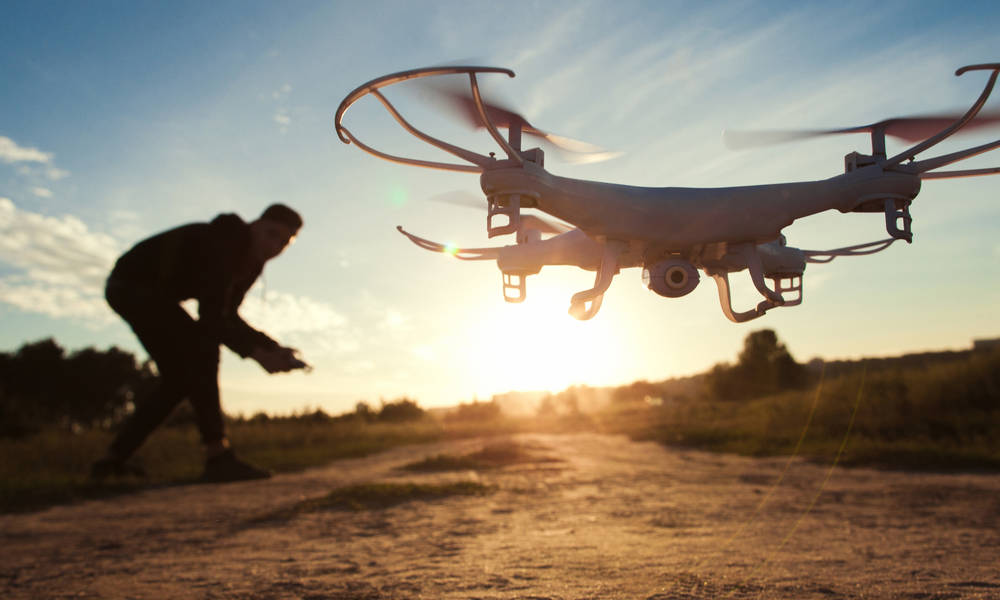
Aviation Groups Ask For More Regulation Of Hobby Drones
After a close call between a small drone and an airliner, three aviation groups are urging Congress to reverse legislation that limits regulations on hobby drone operations.
After a video surfaced earlier this month showing a drone flying within feet of an airliner over Las Vegas, three aviation associations are leading the fight to keep air traffic safe.
Last week, the Air Line Pilots Association (ALPA), Airlines for America (A4A), and the National Air Traffic Controllers Association (NATCA) sent a letter to Congress pushing for a change to the law that limits the Federal Aviation Administration’s ability to regulate hobby drones.
Currently, a section of the 2012 FAA Modernization and Reform Act restricts the FAA from regulating recreational unmanned aircraft systems (UAS) operators. The three groups say this restriction puts national airspace at risk.
“We strongly urge you to remove legislative restrictions that have been placed on the FAA that limit its safety oversight of UAS. The likelihood that a drone will collide with an airline aircraft is increasing,” the groups stated in the letter [PDF]. “By providing the FAA with the full authority to regulate all UAS operations, the safety of passenger and cargo flights will be protected.”
In the letter, ALPA, A4A, and NATCA also pointed out some safety weaknesses with how the FAA currently treats hobby drones.
“Small drones are very difficult to visually acquire by pilots in-flight or by air traffic controllers in the tower, and small drones do not currently have electronic anti-collision technologies that are compatible with airline collision avoidance systems,” the groups wrote in the letter.
Requiring this tracking technology, as well as electronic identification, would help pilots and crew spot the UAS and avert a midair collision—and also aid law enforcement officials in identifying drone operators who are not following FAA guidelines.
As it stands now, the FAA “may never find the drone operator because drones are not required to be equipped with electronic identification and tracking technologies that would give the FAA or other law enforcement officials the information needed to contact [them],” they said.
Meanwhile, The Academy of Model Aeronautics, which represents model-aircraft flying clubs and lobbied Congress for the exemption for hobby drones, said in a statement that it shares the safety concerns of the other aviation groups.
However, the exemption for hobbyists shouldn’t be faulted for the episode, according to AMA Spokesman Chad Budreau. “As we have seen with recent incidents like the Las Vegas drone video, some rogue flyers choose to operate in an unsafe manner despite existing drone laws,” he said. “The FAA and local law enforcement must hold these people accountable.”
The call for friendlier skies will undoubtedly get louder as drone usage increases. In January, the Department of Transportation announced that more than 1 million drones were registered with the FAA, including 878,000 registrations for hobbyists.
(golubovy/iStock/Getty Images Plus)






Comments